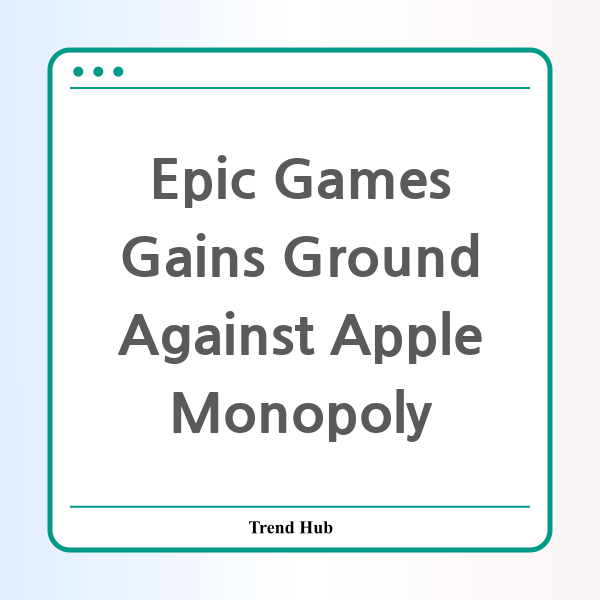* This website participates in the Amazon Affiliate Program and earns from qualifying purchases.

In a significant turn of events for mobile gaming, Epic Games has announced plans to bring the beloved Fortnite back to the U.S. App Store through its EU developer account. This comes on the heels of a landmark court ruling that has dramatically reshaped the landscape of app distribution and purchases on mobile platforms.
With the recent legal victory in the case of Epic Games v. Apple, Epic now has the opportunity to submit Fortnite to Apple’s iOS App Store using a developer account registered in Sweden. This move is not only a strategic response to a major court ruling but also a promising development for developers and users alike, indicating a shift in the power dynamics between big tech firms and app creators.
After a series of intense legal battles revolving around Apple’s monopolistic practices, Epic Games finally received the green light to allow developers to communicate with customers about alternative purchasing options. The ruling explicitly prohibits Apple from charging its infamous 30% fee on in-app purchases, which has long been a point of contention among developers who felt extorted by Apple’s stringent policies.
Epic Games, known for its innovative approach to game distribution, had initially introduced an in-app payment system that led to the legal confrontation with Apple. Following this confrontation, Fortnite was forcibly removed from the App Store, but now it appears that Epic is on the brink of restoring its presence in Apple's ecosystem. As Tim Sweeney, CEO of Epic Games, mentioned, "We have conversed with Apple on the topic," suggesting a newfound possibility for collaboration between the two companies in light of the recent ruling.
The implications of this court decision extend far beyond just Fortnite; it represents a significant shift in the app marketplace, promoting fairness and competition. Previously, Apple had maintained a monopolistic hold over its App Store, implementing fees that stifled innovation and limited options for developers. This ruling and its aftermath hint at a more equitable environment for app developers where they can offer products at varying price points without the fear of punitive actions from dominant players.
Interestingly, this upheaval in the app market comes alongside a broader discussion about the accountability of major tech companies. The ruling has sparked discussions on the need for structural changes within digital marketplaces to prevent monopolistic practices. As Big Tech firms face increased scrutiny from regulators and the public alike, this may be just the beginning of major reforms that enhance competition and consumer choice.
In the wake of the ruling, Epic Games has already announced the launch of new "webshops" that empower developers to create their own websites for off-app purchases, a game changer in the subscription-based economy that mobile gaming operates within. This advancement provides unprecedented opportunities for developers to innovate and engage with their audiences more effectively.
Furthermore, with competitors moving quickly to capitalize on this changing environment, it’s clear that the repercussions of this ruling will ripple through the tech industry, potentially ushering in a new era of app development and consumer interaction. This scenario raises essential questions about the future of digital marketplaces: Will users see lower prices? Will innovation thrive? And most importantly, can the app landscape return to a space where creativity and competitive spirit flourish unimpeded?
As the legal battles unfold and the marketplace adjusts to this new reality, one thing is clear: the fight for fairness in the app ecosystem is far from over. Whether through regulatory frameworks or private litigations, the push for a more balanced playing field is gaining momentum. Developers and users alike should remain vigilant and engaged as the outcome of these changes could have lasting implications for how digital applications are distributed, purchased, and experienced.
* This website participates in the Amazon Affiliate Program and earns from qualifying purchases.